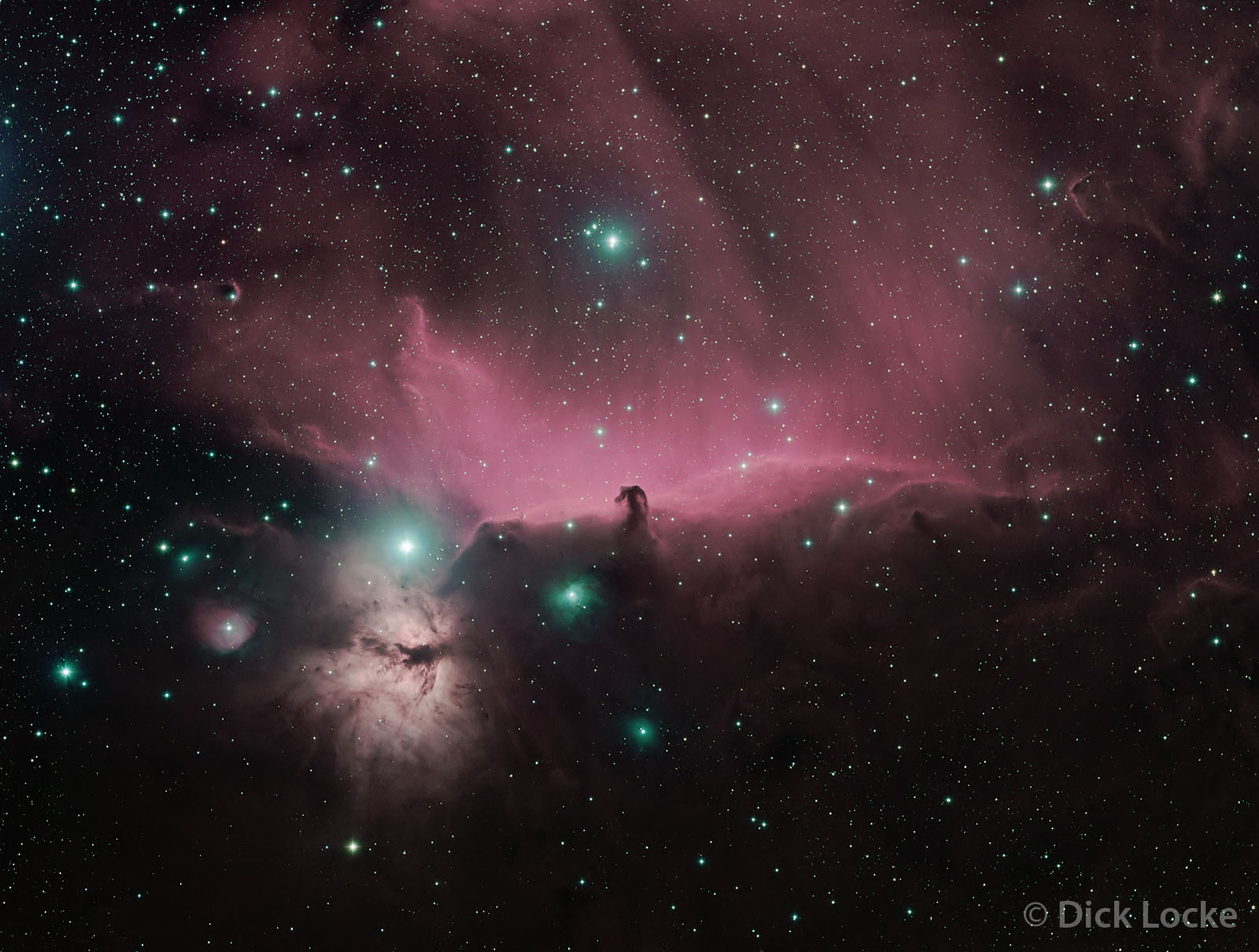
Horsehead & Flame Nebula Area: Wide View Natural Color

The Horsehead Nebula casts one of the more recognizable shapes in astronomy. It is in the middle of Orion and is about 1,500 light years away (relatively close by universal standards.) The dark nebula is designated Barnard 33. This wikipedia link has more info about the nebula and surrounding area. Other Orion-related pictures are here. Chanel is using my Orion Nebula as described here. This is from the Wimberley January 2017 trip.
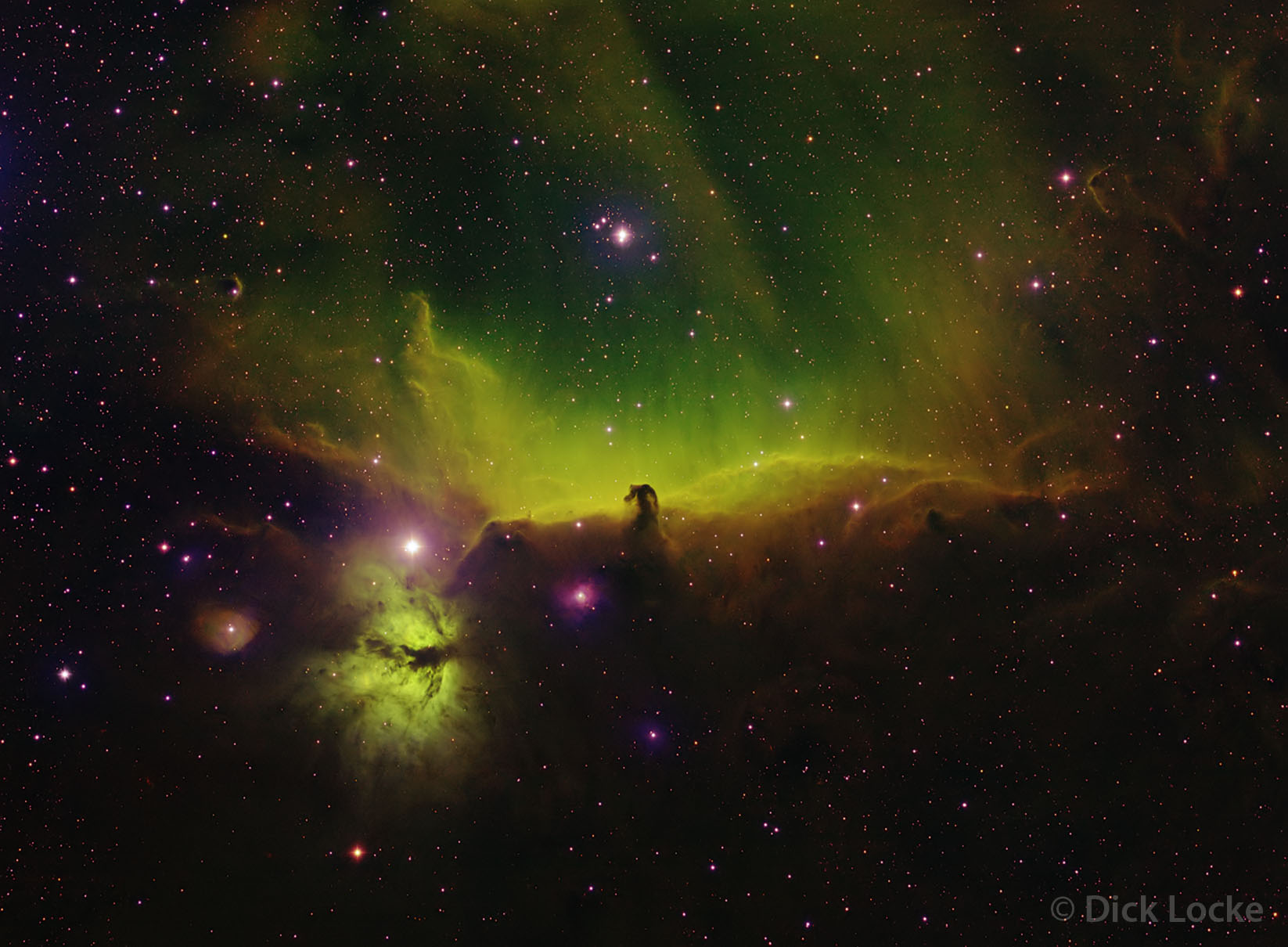
This is a modified Hubble Palette narrowband image, composed of Red = Sulfur, Blue = Oxygen, Green = Hydrogen Alpha. (H-a, 656 nm), oxygen (OIII, 501 nm), sulfur (SII, 672nm). I did include some actual blue as well, total exposure through all filters was about 7 hours AP 900GTO mount, SBIG ST-8300 camera along with the Takahashi FSQ-85 "Baby Q" telescope (without the reducer). My processing techniques and workflow are discussed here.
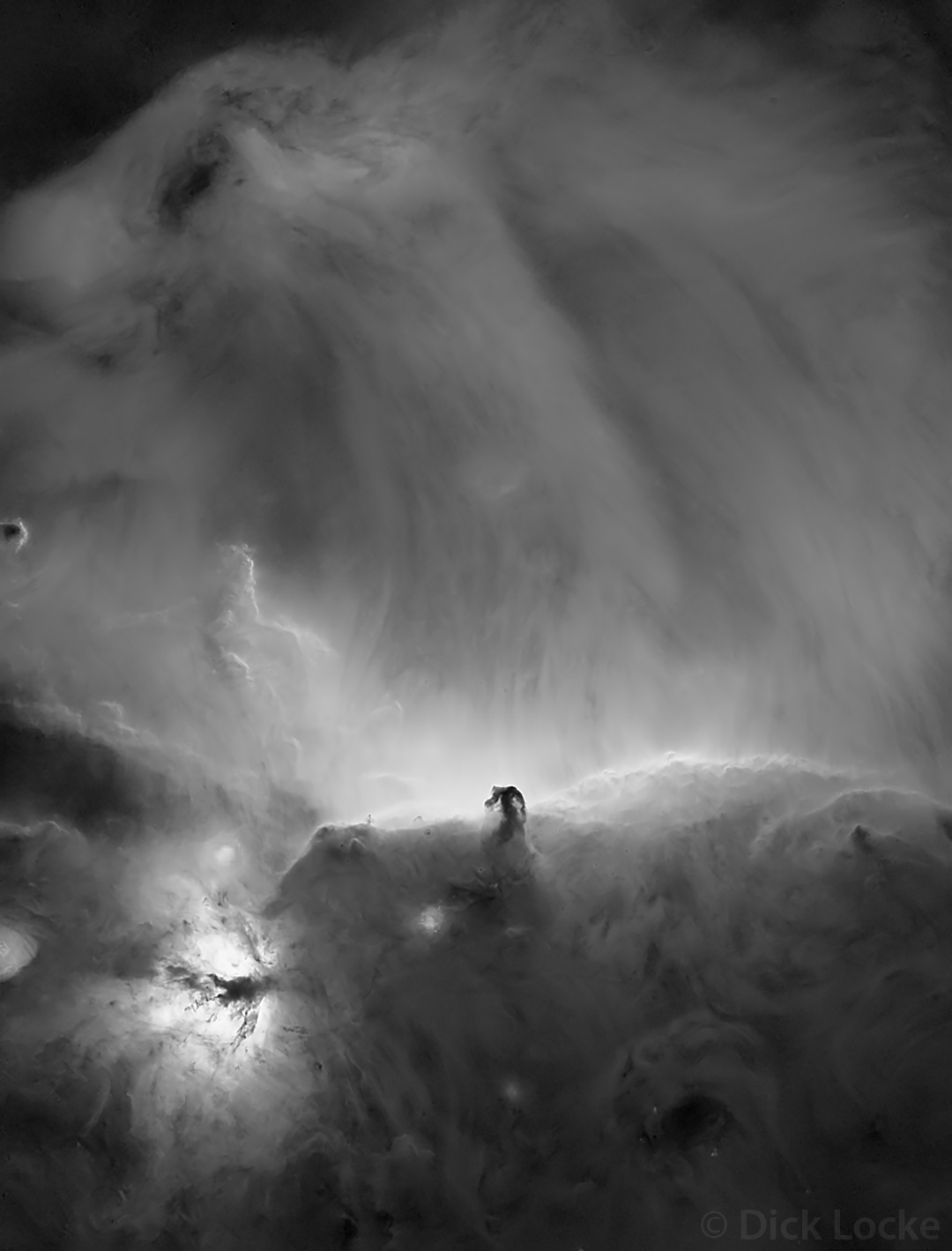
The Horsehead Nebula casts one of the more recognizable shapes
in astronomy. It is in the middle of Orion and is about 1,500 light years away
(relatively close by universal standards.) The bright area to the lower left is
the Flame Nebula.
The wide-area image represents 7 hours of total exposure grabbed over multiple
clear nights from my increasingly bright suburban skies. Light pollution
normally causes problems for asto-imaging, but with filters I can fight back.
It's monochrome (black and white) because I used a hydrogen alpha (H-alpha)
filter that only allowed in deep-red light to pass through.
The streamers revealed in this picture are caused by gas leaving the nebula and
magnetic field interaction.
I removed the stars in this version to better focus on the amazing clouds in the
nebula.
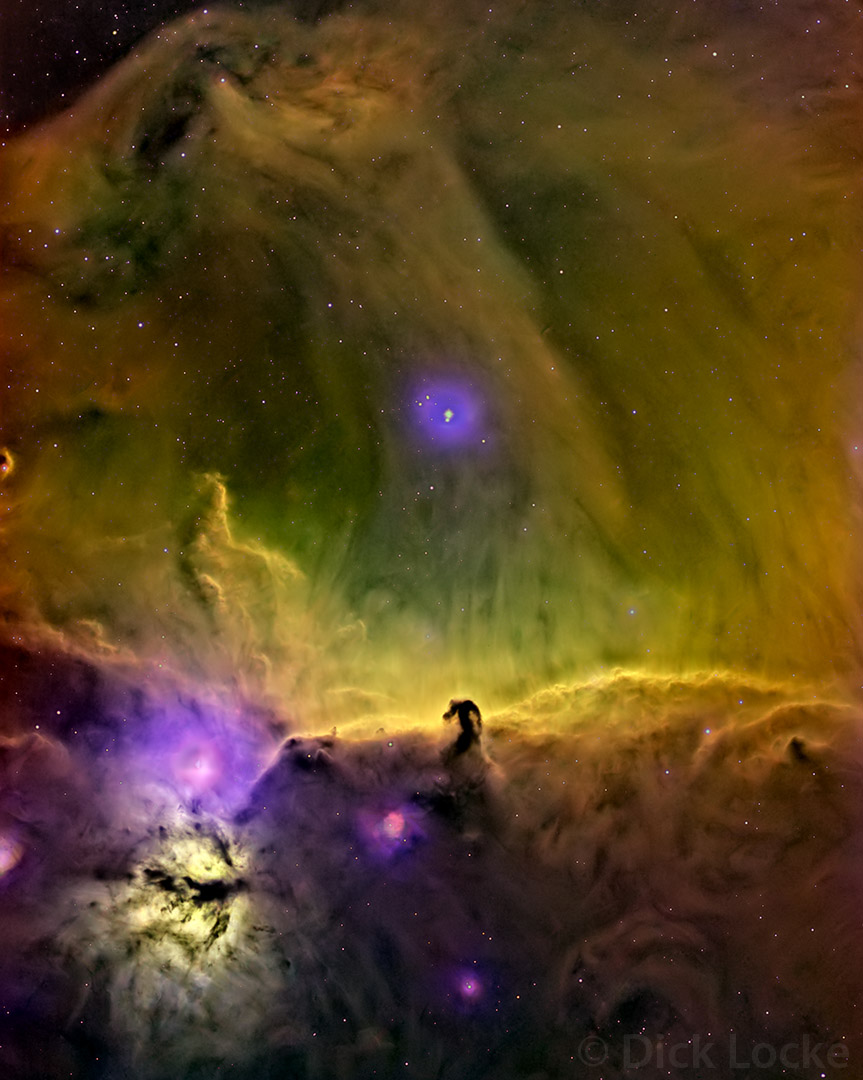
Horsehead and Flame Nebulae, 2021 Back Yard Portrait View
False color image from 2021 in the back yard with narrowband filters, 16 hours total exposure.
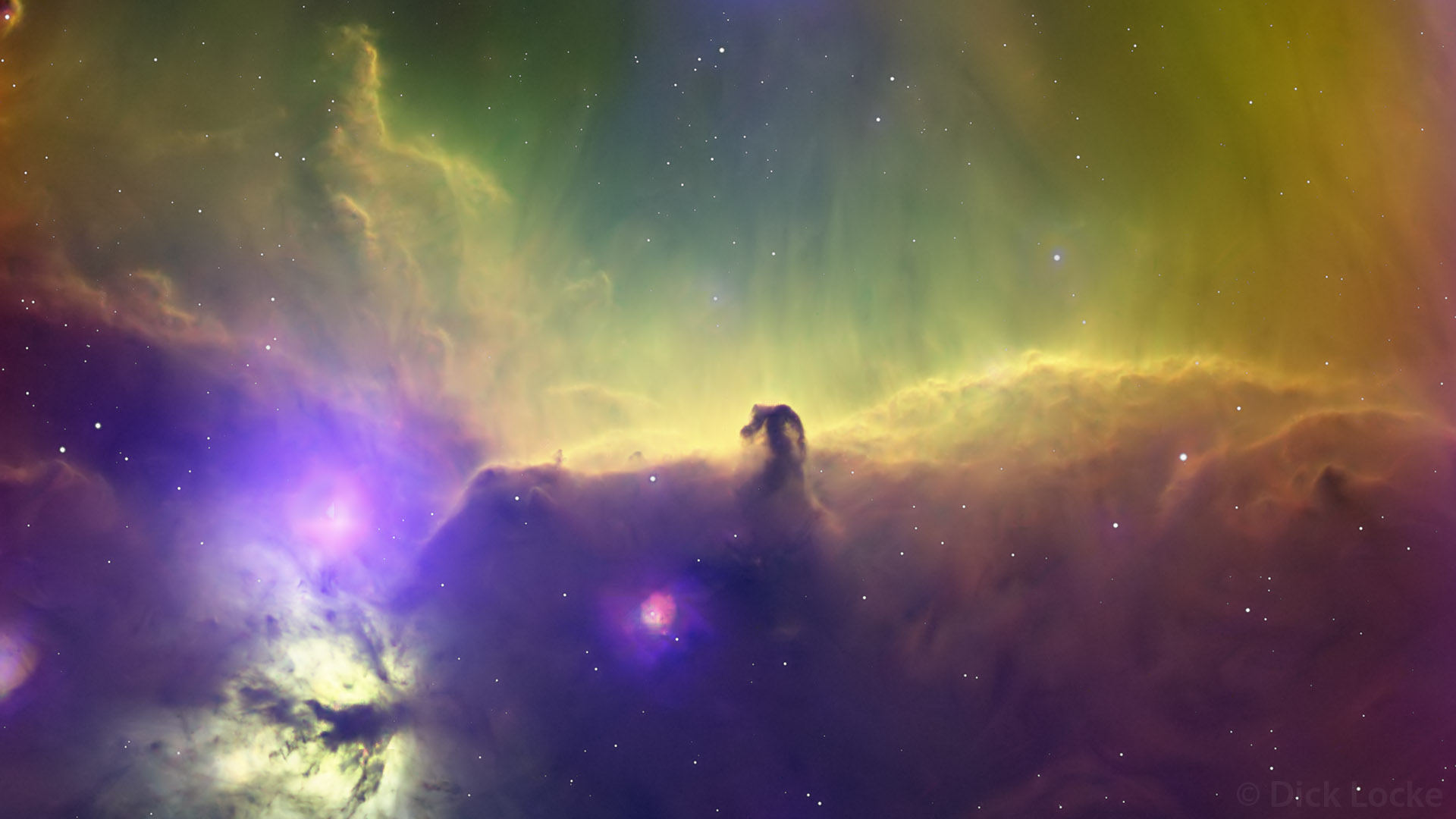
Same base image as previous version.
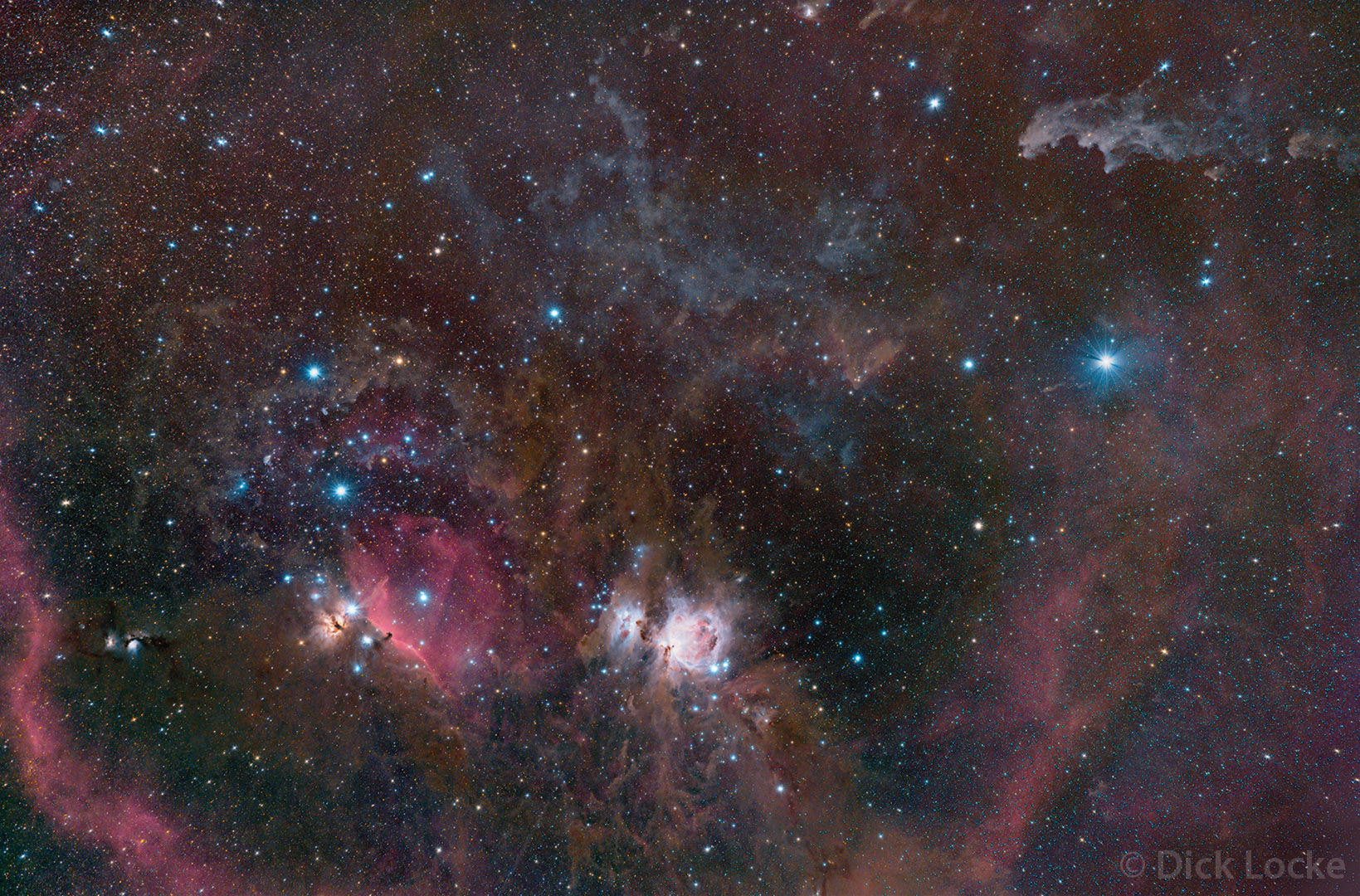
Part of the Orion Molecular Cloud Complex from the Texas Hill Country back in 2017, reprocessed in 2021. This star forming region spreads across hundreds of light-years and covers much of the Orion constellation itself. The "Witch Head Nebula" is nicely shown here on the upper left. It's (Witch Head) comprised of dust-reflected light from the blue star, Rigel, on the right. This is 65 minutes total exposure via a Nikon D810a camera & Zeiss 135mm camera lens.
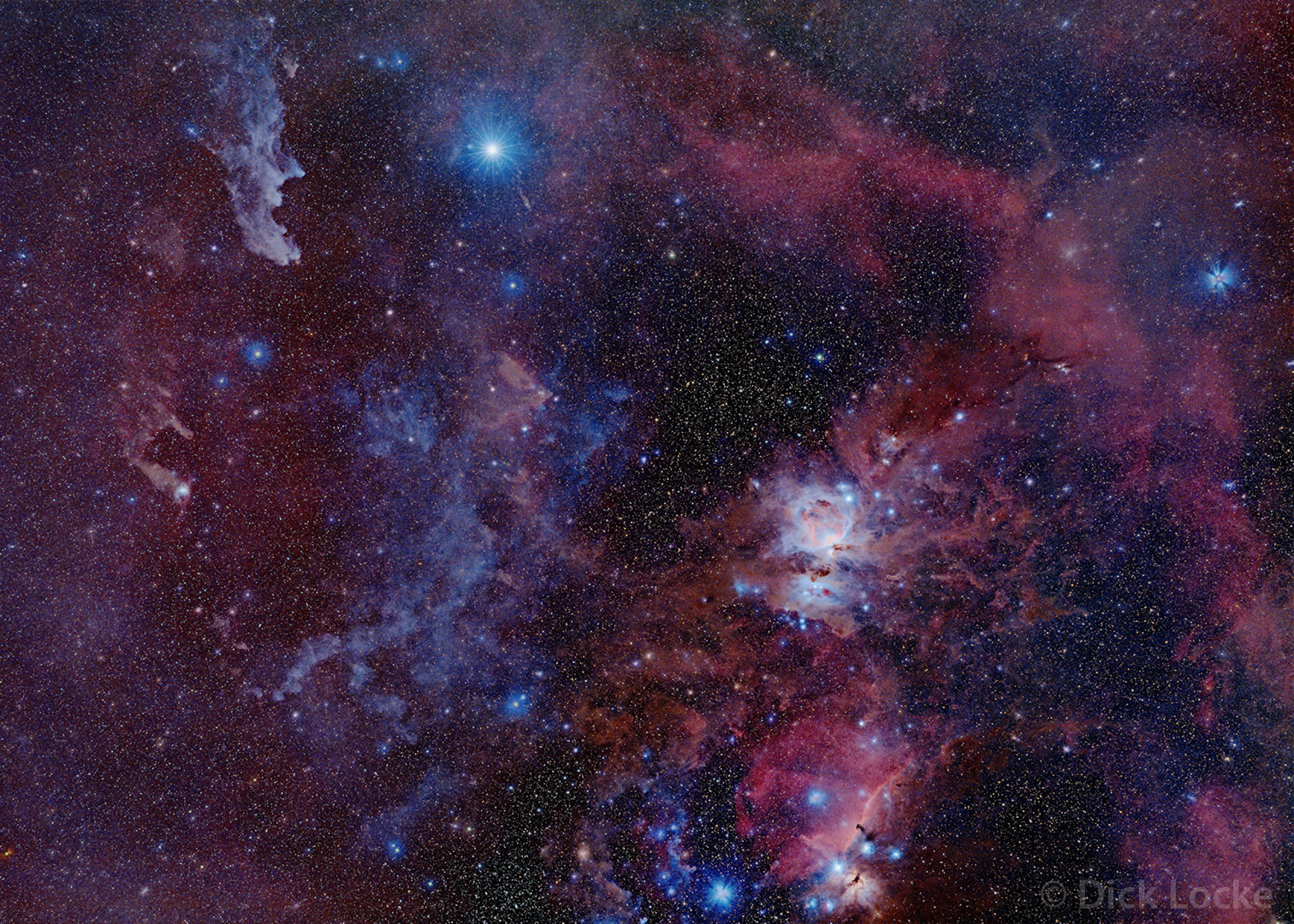
Same base data as previous image but reprocessed to accentuate the blue
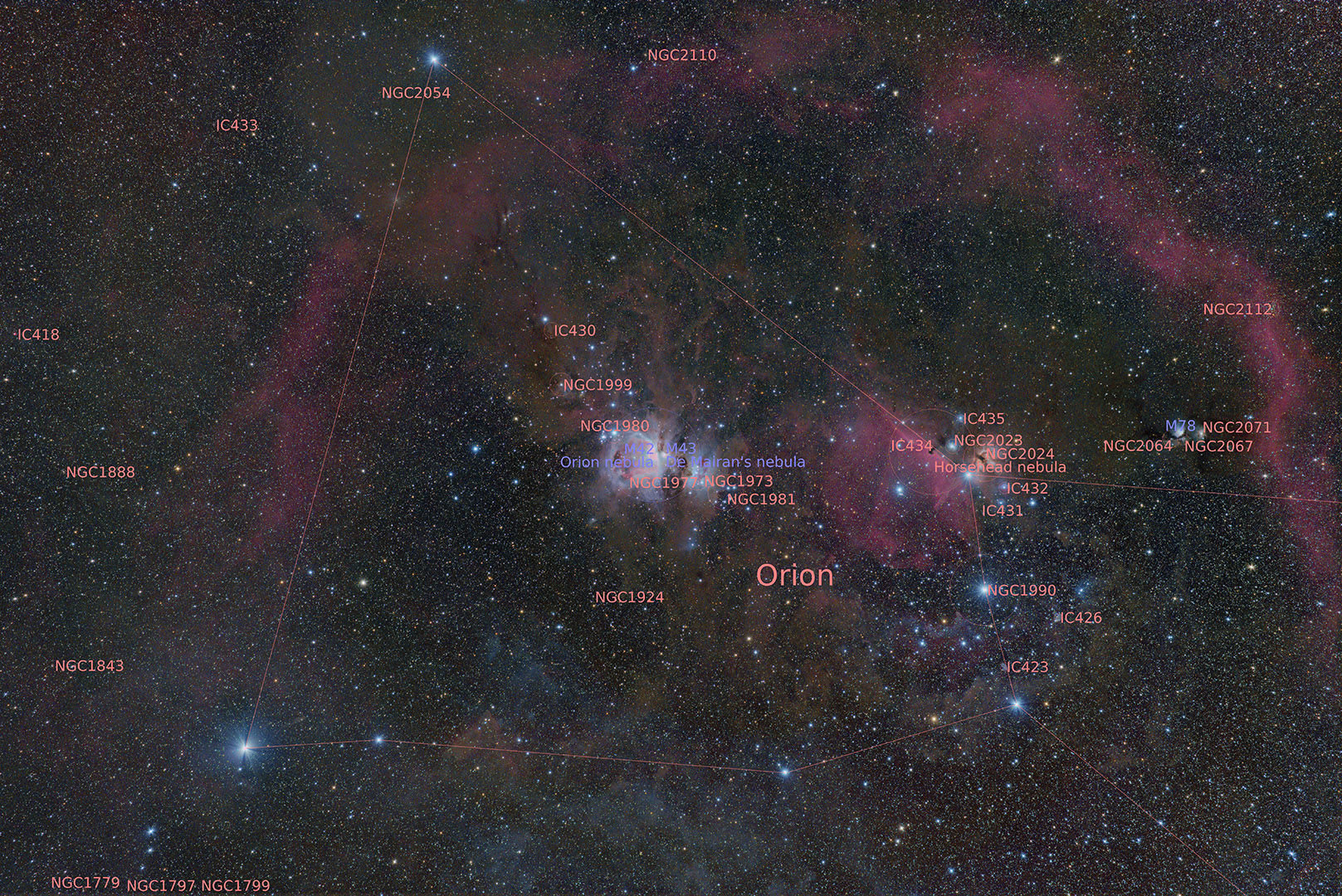
Horsehead Nebula Portrait
This is a blend of 130 frames, with the most recent 41 coming from The Davis Mountains December 2010 trip. There's about 12 hours total exposure involved. This is an area filled with interesting objects and I'll continue to work on this area in the future, especially with narrowband filters from the back yard. Takahashi TOA 130 Telescope (a 5" APO refractor telescope) with the reducer, AP 900GTO mount, QHY8 CCD Camera. Other pictures from the camera are are here. Images processed using my Astronomy Image Processing Workflow.
 Scroll down or click here for the large, narrowband image
Scroll down or click here for the large, narrowband image
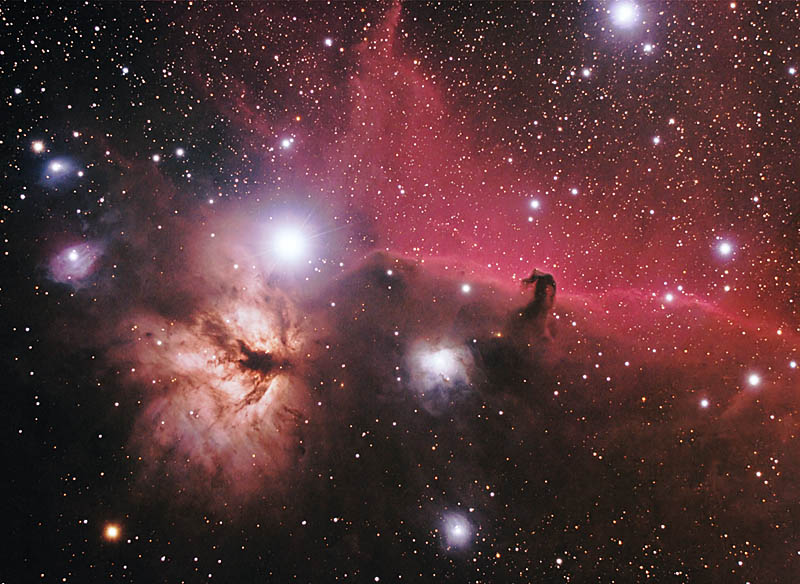
Combination of 29x4 minute exposures (116 minutes total exposure). Takahashi TOA 130 (a 5" APO refractor) and Canon EOS D20a. My current image processing workflow is here. The images from this session feature 29 light frames median combined, along with 9 dark frames. On the darks, I did both a median combine and an average combine, and then averaged those together. Temperature ranged from ~51 degrees F at the start of imaging to 42 degrees when I was packing up and doing my last darks. The rest of the images from this night...
Feb 10, 2006: I'm pleased to report that the image above was the runner-up out of 15 images in the digital_astro Yahoo Group's competition for the 2006 January Challenge! (You may have to be a member of the group to access the last link)
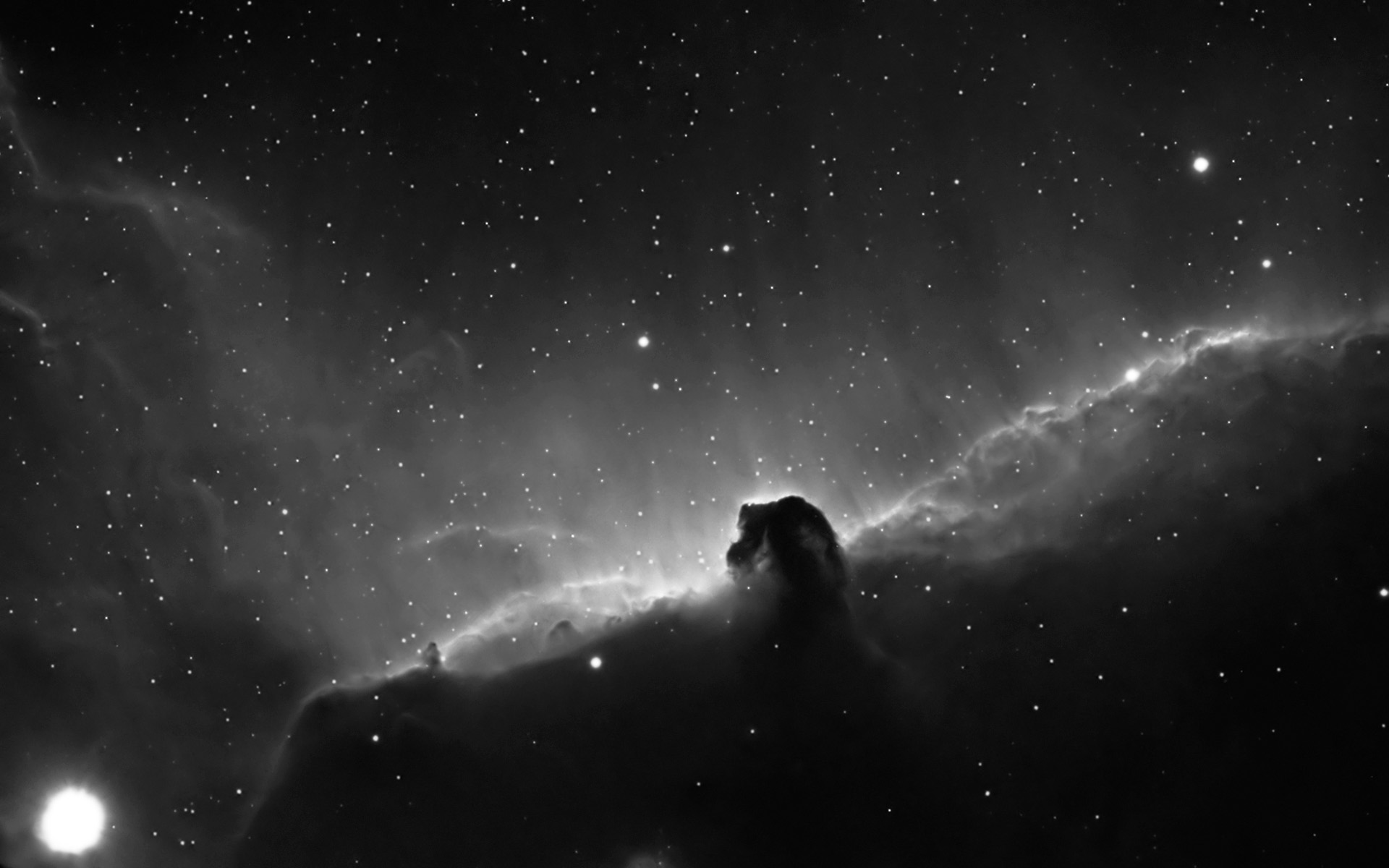
The Horsehead Nebula Picture above represents 9 hours of total exposure grabbed over several clear evenings during Jan 2009 from my increasingly bright suburban skies. That much light pollution normally causes a lot of problems for asto-imaging, but with filters I can fight back. It's monochrome (black and white) because I used a hydrogen alpha (H-alpha) filter that only allowed in deep-red light to pass through.
The streamers revealed in this picture are caused by gas leaving the nebula and magnetic field interaction. (Wiki Article Here)
The steaming hot horsehead is cropped to 1920x1200 "HD" at the full camera resolution. The image above was derived from 108 x 5 minute exposures, 9 hours total, during January 2009 from The Woodlands, TX.
Equipment used: Takahashi TOA 130 Telescope (a 5" APO refractor telescope) and flattener, Astronomik 13nm Hydrogen Alpha filter, AP 900GTO mount, QHY8 CCD Camera. Other pictures from the camera are are here. Images processed using my Astronomy Image Processing Workflow, with the additional step of discarding all the Green and Blue colors in Photoshop. See further thoughts about processing at the bottom of the page.
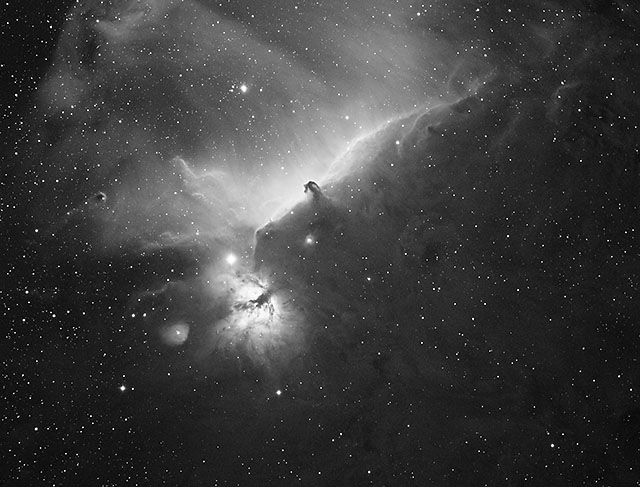
The image above consists of 17 * 5 minute frames from Wimberley, TX, March 2013. Equipment: SBIG ST-8300 CCD camera with the FW8-8300 filter wheel, Astrodon narrowband 36mm filters, the Takahashi FSQ-85 telescope with reducer, AP 900GTO mount.
Other Narrowband Filter Images

Original Horsehead/Flame Nebula Picture Page here; with more info on what you're looking at, and a film image...
Astronomy Pictures: Dick Locke's Astrophoto Gateway page....
Copyright © Dick Locke. All Rights Reserved.
Contact and Image Use Information